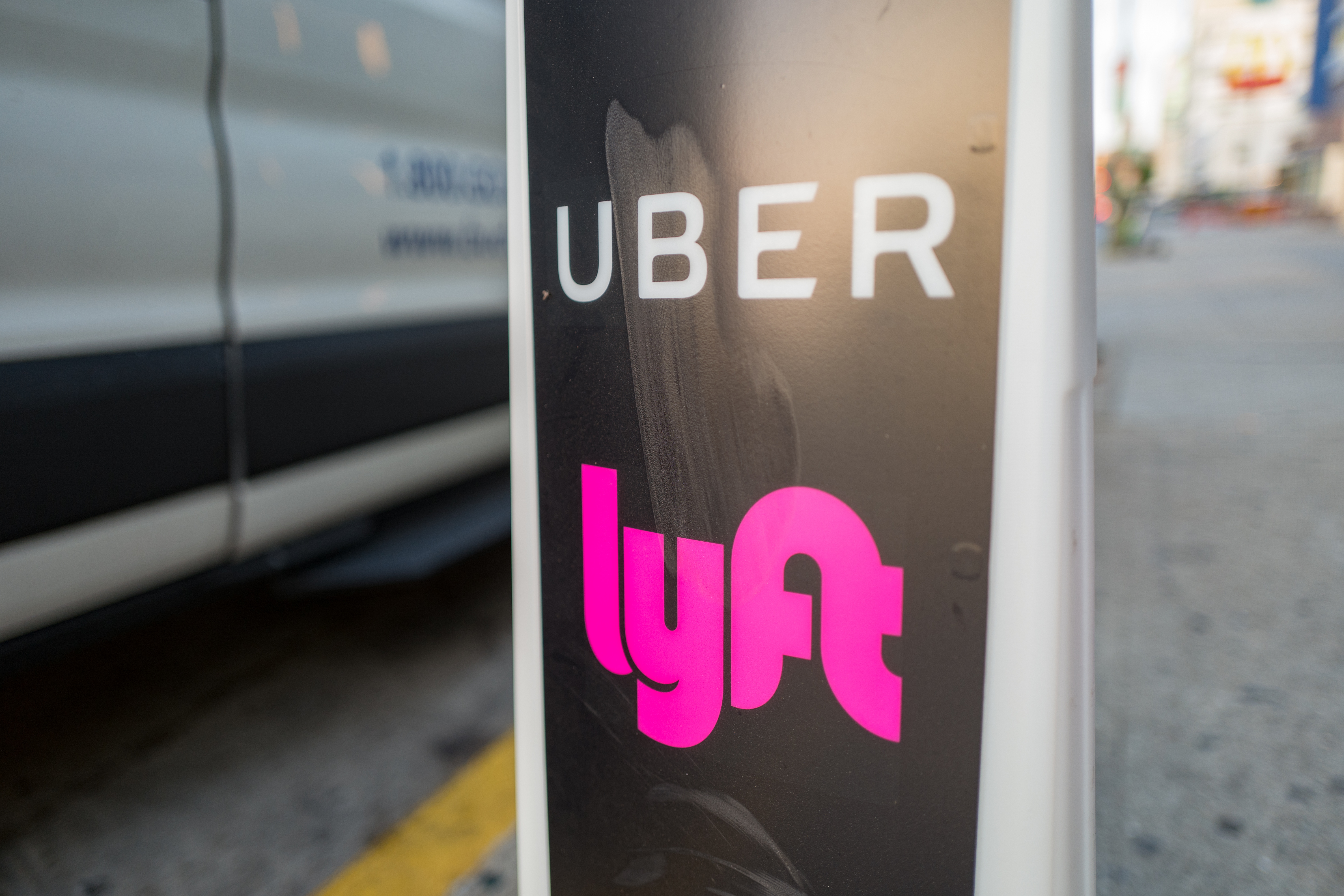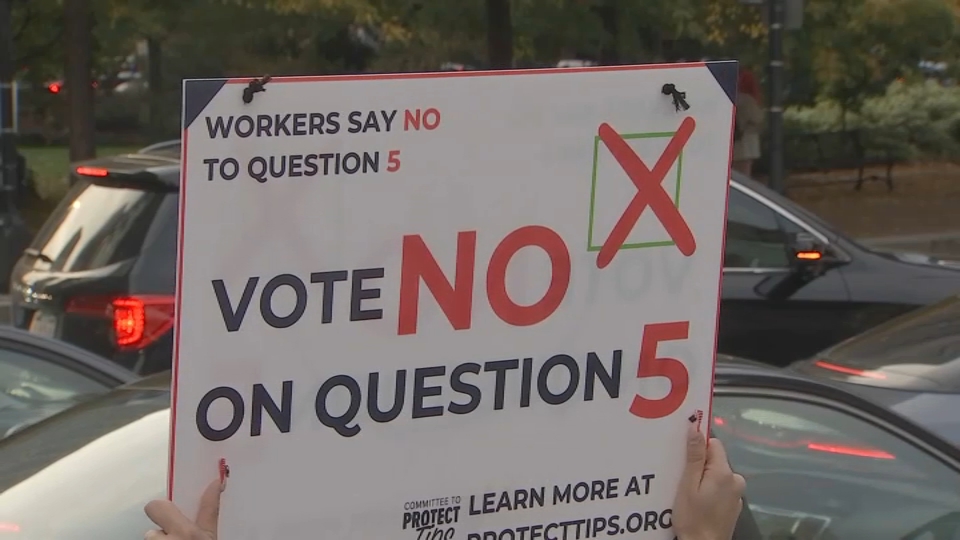
As of early Wednesday morning, Uber and Lyft drivers in Massachusetts appeared on track to be able to negotiate their wages, benefits and working conditions, with voters favoring Question 3 by solid margins.
As of 1 a.m. Wednesday with 73% of votes tallied, 54% of voters supported the initiative to allow app-based drivers the right to unionize, and 46% opposed it.
"They thought they were too big for us to stand against them. They thought that will we not have our union. But by every indication, we are …. They should know that they got it wrong," driver Cletus Awah said at around 9:30 p.m. on Tuesday, before there were official results, at an election night party in downtown Boston hosted by 32BJ SEIU.
Speakers at the party were all optimistic, many saying they were all but certain of victory.
The approach outlined in the ballot question is called sector-based bargaining, and it will allowed drivers across multiple companies to negotiate wages, benefits and work conditions, and also allow multiple transportation companies, like Uber and Lyft, to form their own association to represent them while bargaining with the drivers union.
The state will supervise the labor agreements and the secretary of labor will the responsibility to approve or disapprove the negotiated recommendations.
The question was intended to improve drivers' welfare, the new law saying: "These persons often suffer poor pay, inadequate health coverage, and irregular or inadequate working hours. It is hereby declared that the best interests of the commonwealth are served by providing transportation network drivers the opportunity… to bargain collectively in order to obtain sustainable wages, benefits, and working conditions."
There were no official opponents to the law, though some warned that Uber and Lyft prices would likely increase if it passed.



